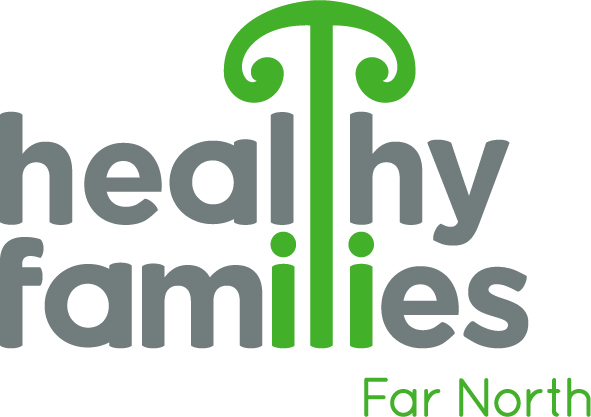Aotearoa should be a place where everyone can access affordable, healthy kai. Where food supply is sustainable and resilient and provides and prioritises nutritious and culturally appropriate food for everyone.
With crowds of up to 30,000 expected to visit Waitangi in February every year and more than 150 market stalls on display at this year’s Waitangi Day celebrations, the Waitangi National Trust alongside Healthy Families Far North wanted to explore how we might better champion clear health and wellbeing initiatives by taking a Healthy Environment Approach, to enable and promote active, healthy and flourishing communities.

The Healthy Environment Approach (H.E.A), developed by Healthy Families South Auckland, looks at four simple health principles where water is the first choice, healthy kai options are available for everyone, championing a smokefree, alcohol and drug free event and encouraging movement.
Manager of Healthy Families Far North, Kath Wharton, said the Healthy Environment Approach encourages local councils, event organisers and community organisations to realise and maximise its potential in helping improve the health of the communities we serve.
“The Healthy Environment Approach is about embedding simple changes in order to create a more sustainable and positive long-term health outcomes for the future of our tamariki,” she said.
“Small changes have the power to make a big difference. It’s about our whānau having access to those options so they can enjoy good health and wellbeing, enabled by cultural, social and physical environments.”
Together with the Waitangi National Trust, we were curious to learn what kai options were being offered by vendors, if they offered a healthy food option or if it was something they had been thinking about, and what difference this makes, if any, for whānau.

We found there was a balance between vendors providing what they traditionally knew would sell, and others providing additional healthy options where 23 percent of food and drink options had high nutritional value, 31 percent of food and drink options had some nutritional value, but were not considered part of an everyday diet, while 46 percent of food and drink options were of poor nutritional value.
One vendor said it was about offering what they knew would sell versus nutritional value.
"Each year we sell out. We know people will buy our stuff so we don't think about what's nutritious."
“This is my first time here offering vegan kai. I went to the AMP show and sold out so I thought I would come to Waitangi," said another.
For whānau with tamariki, it was about time, access and “keeping the kids happy.”
"I've seen some good kai options on the other side by the stage, but I mainly stayed on the field because that's where the rides are for the kids."
"I look for the shortest line and if I'm really hungry I’ll just get whatever, even if I don't like it.”
"I try and keep the kids happy and buy them what they want. These big slushy drinks and donuts are everywhere. I waited in line for 40 minutes just to get them one."

By working collectively with the Waitangi National Trust, vendors and whānau, we have an opportunity to look at how we currently manaaki our communities during events hosted at the Waitangi Treaty Grounds.
Waitangi Day is an example of how we can better manaaki manuhiri, Wharton added.
“The family-friendly event is free from smoking, vaping, alcohol and fizzy drinks and there were water trucks available across the sites. It demonstrates how event organisers can play the most influential role when it comes to making real systemic shift to the wellbeing of our communities,” she said.
"If we can support others to centre health and wellbeing in the development of services, policies and practices by supporting organisations to prioritise wellbeing in the development of spaces and events, then whānau are exposed to wellness in the world around them."
“The opportunity for us now is to think about how we might do things differently next year, and how we can intentionally embed practices that have clear wellbeing outcomes for everyone.”
